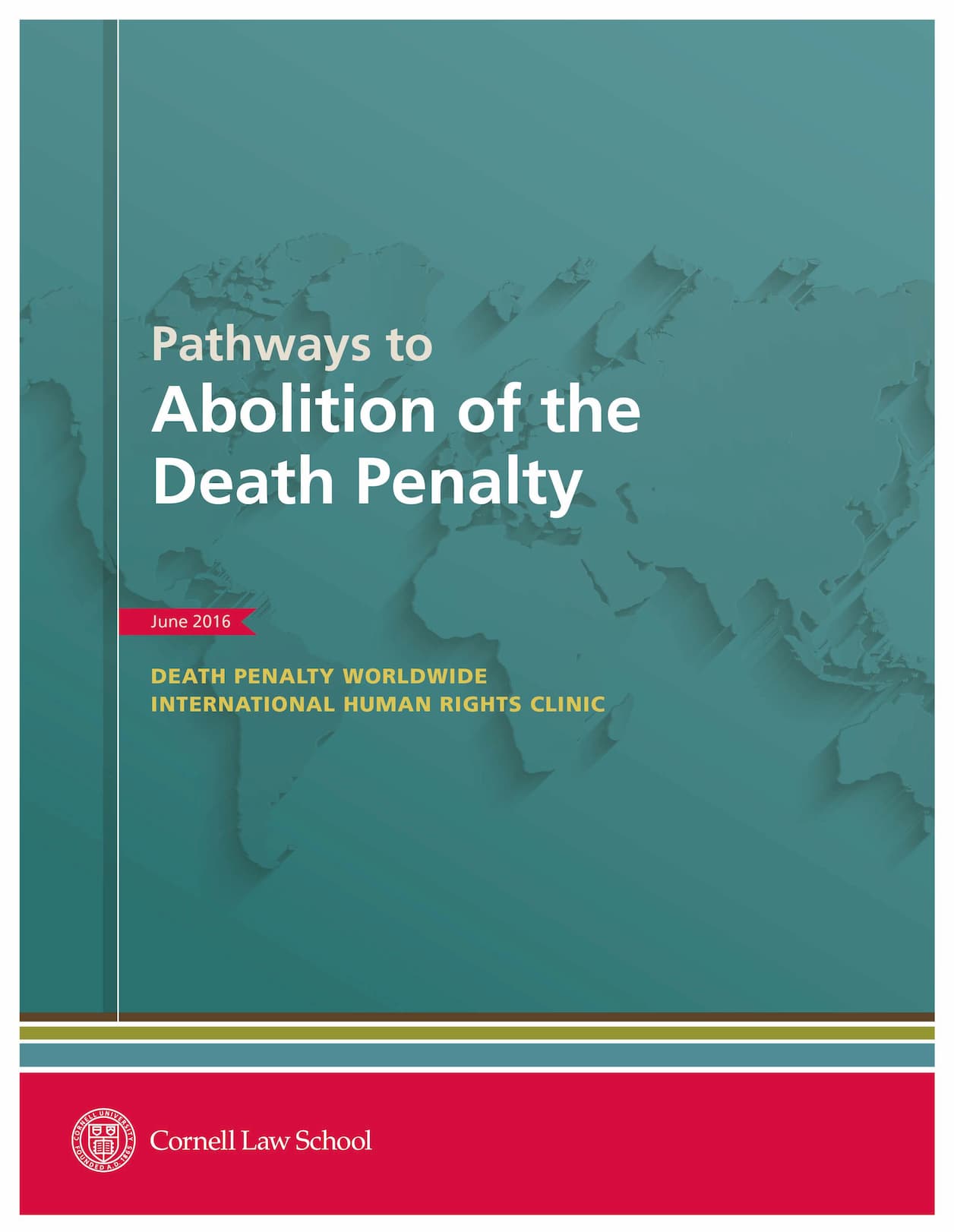Pathways to Abolition of the Death Penalty: Analyzing Successful Abolition Strategies
Death Penalty Worldwide at Cornell Law School is pleased to announce the publication of its most recent study of the factors leading states to abolish capital punishment in law. Pathways to Abolition of the Death Penalty examines the historical and political processes underlying abolition, including the roles played by state and non-state actors such as parliamentarians and government officials, human rights defenders and international organizations, journalists and public opinion. The study, which benefitted from the support of the Swiss government, was launched at the 5th World Congress Against the Death Penalty in Oslo, Norway, on June 23.
Our project expands upon the groundbreaking report published by the International Commission against the Death Penalty in 2013, How States Abolish the Death Penalty. Building upon the case studies and trends observed in the ICDP’s report, our publication covers 14 new jurisdictions across the world. We examined examples across a range of geographical regions and periods, from the world’s first full legal abolition in Venezuela in 1863 to the most recent abolition success stories (Fiji, Suriname, Republic of Congo, Madagascar, Benin and Maryland).
From these diverse historical and political contexts, we analyzed the elements of effective abolition strategies. While there is no universal blueprint and every country comes to abolition in its own way and on its own timeline, our study suggests that, especially in recent years, pathways to abolition rely on a combination of factors, including (1) restricting or suspending the death penalty in the years leading to abolition; (2) engaging parliamentary allies; (3) making use of the advocacy opportunities provided by human rights bodies’ prioritization of capital punishment; and (4) harnessing the momentum of the global trend towards abolition.
